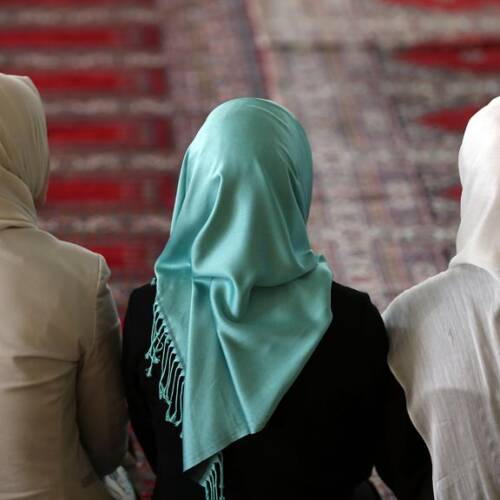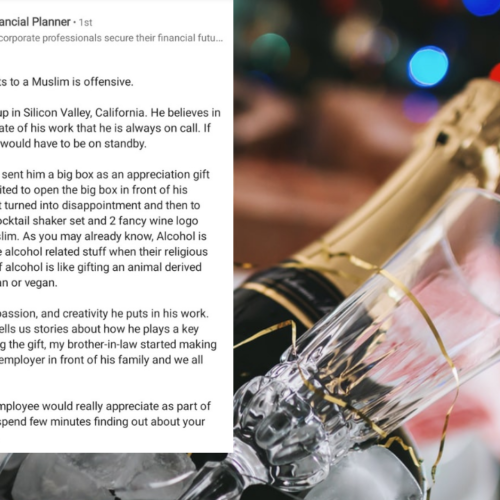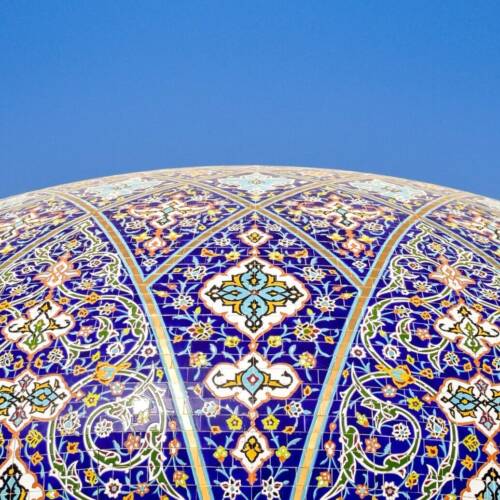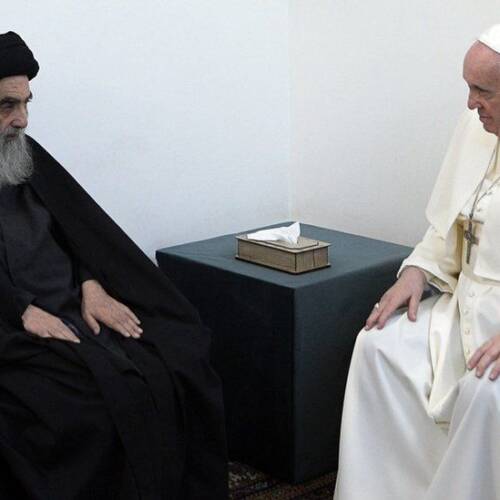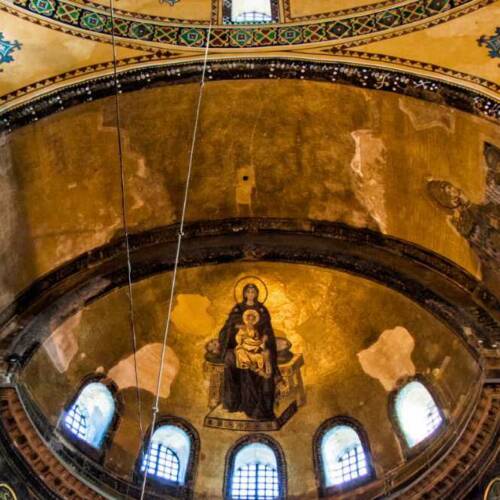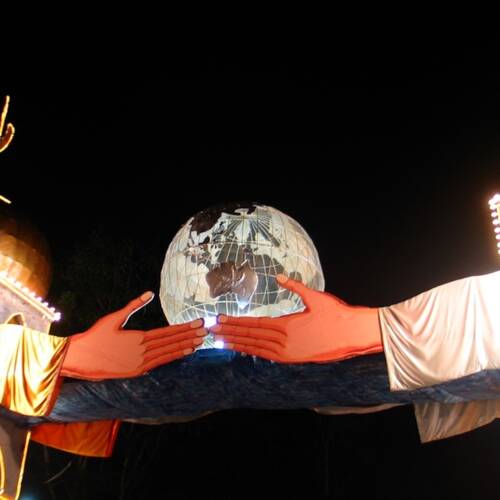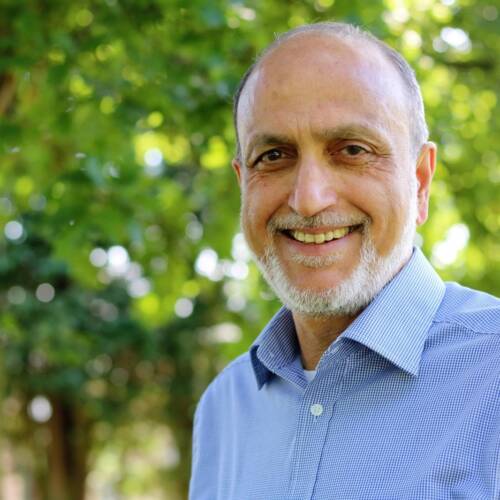
Christian-Muslim Encounters: Moving Beyond Tea and Samosa Interfaith
22 Jul 2020The months during lockdown, Black Lives Matter protests and the racist and misinformed counter protests has focused our attention on the deeply rooted divisions in Britain, structural and institutional racism, the emboldened far right and prevalence of white supremacy. The seeds of division have been sown: nationalism, polarisation, and polemics are growing.
Britain is lurching to the right. Racism and Islamophobia has become normalised and more acceptable. We require bridge builders and stronger interfaith leadership now more than ever before; to heal the divides which have become deeply rooted. This might not be a comfortable process but we need to collectively work to address these issues.
Interfaith bridge building is going to require a radical new approach and the pushing of boundaries. We will need to go beyond tea and samosa interfaith. This often repeated phrase provokes lots of interesting responses, particularly from those who are adamant they have never organised such interfaith and then those who are equally adamant that it is essentially required.
In reality, the vast majority of interfaith falls under this category of introducing each other, learning a little about each other’s faiths, journeying together, open days, panel discussions and social action. This is not an attempt to criticise the great work taking place, but a reflection in order to build on it.
Reflecting on my interfaith journey, my deep desire to build bridges and my experience, growing from being an observer and a passive participant to becoming a researcher, activist and organiser. Interfaith has been a lifelong endeavour, I have dedicated 20 years to it. I am at a juncture where I need to rethink the legacy I intend to leave. My two interfaith priorities are to nurture future bridge builders and interfaith leaders and to pen my thoughts more frequently.
To begin with I must say we need more tea and samosa interfaith, this is a wonderful first step to initiate the newcomer. To attract those who may not have encountered the perceived other, who may be sceptical or ideologically against it. The first step into the unknown is often the hardest, once you have had your first taste of interfaith, it will either leave you longing for more, or scare you away to never return.
Structures are needed which guide people along their journey, those more experienced being able to walk alongside our future activists and leaders, working together to chart the path ahead and learning from each other. Nurturing followers to become leaders. We need to learn to utilise and channel the eagerness and zeal of those wanting to contribute, rather than hampering them.
We need more mosque open days, big iftars, round table conversations and opportunities to encounter the ‘other’. It is incredible to see the significant increase in interfaith in the last 10 years, however we have further to travel and more to achieve. Tea, samosa and cucumber sandwiches should be our appetisers, and interfaith the starter, main and dessert! For too long and for too many this is the end point, becoming trapped between breaking bread and dialogue events. I believe we have too many “Citizen Khans”, clumsily stuttering that all our religions are the same and we should ‘all love one another’, but never moving beyond words. Too often coming round the table, having their quarterly dose of samosas, taking a photo with the bishop, saying a few loving words and leaving without any further actions.
The term interfaith is deeply contested, alternative labels include ‘inter-religious’, ‘multifaith’ or ‘intercultural’. I want to acknowledge that the term interfaith can be a barrier, it often gives the impression of a melting pot of religions, diluting one’s faith, belief and practice. I can understand the deep concerns about interfaith becoming theosophical, perennial, syncretic and therefore each religion losing its individuality.
This is not the type of interfaith I follow and I am convinced that we need a model that takes religions as they are and of which celebrates and understands our differences. However, the journey must begin with understanding our common ground and similarities. This isn’t about finding our lowest common denominator, it is about beginning the journey. As the late MP Jo Cox articulated during her maiden speech, “We have much more in common, than that which divides us.”
The last few years I have been reminded that very few people are aware of our common ground, heritage and shared history. This needs to be our starting point, so why stop there? I do not deny sharing our culture and yummy food is a wonderful opportunity to begin the conversation and start forming friendships. Fostering friendship is important, however these are opportunities to challenge institutionalised racism and Islamophobia, and policy and practice which often sees religion as part of the problem rather than the positive contributor it can be to British society.
My intention is to provoke a conversation on interfaith and challenge some of the norms that I’ve seen emerging, push boundaries and move interfaith beyond its existing echo chambers. Interfaith can become relevant for the lived realities of our communities.
This provocation is an introduction to the four part series on Christian-Muslim Encounters. Over the next few months, key areas of interfaith will be explored. In August, I will aim to answer why we need Christian-Muslim encounters. In September, Christian-Muslim diversity and interfaith will be investigated. In October, our focus will be on ‘Evangelism, Dawah & Dialogue’. And concluding in November, in time for Interfaith Week, we will look at the challenges and opportunities that pave the way ahead.
The journey begins with ‘why do we need interfaith?’ I ask you to join me on this journey, share your thoughts, ask questions and challenge what I have written.






